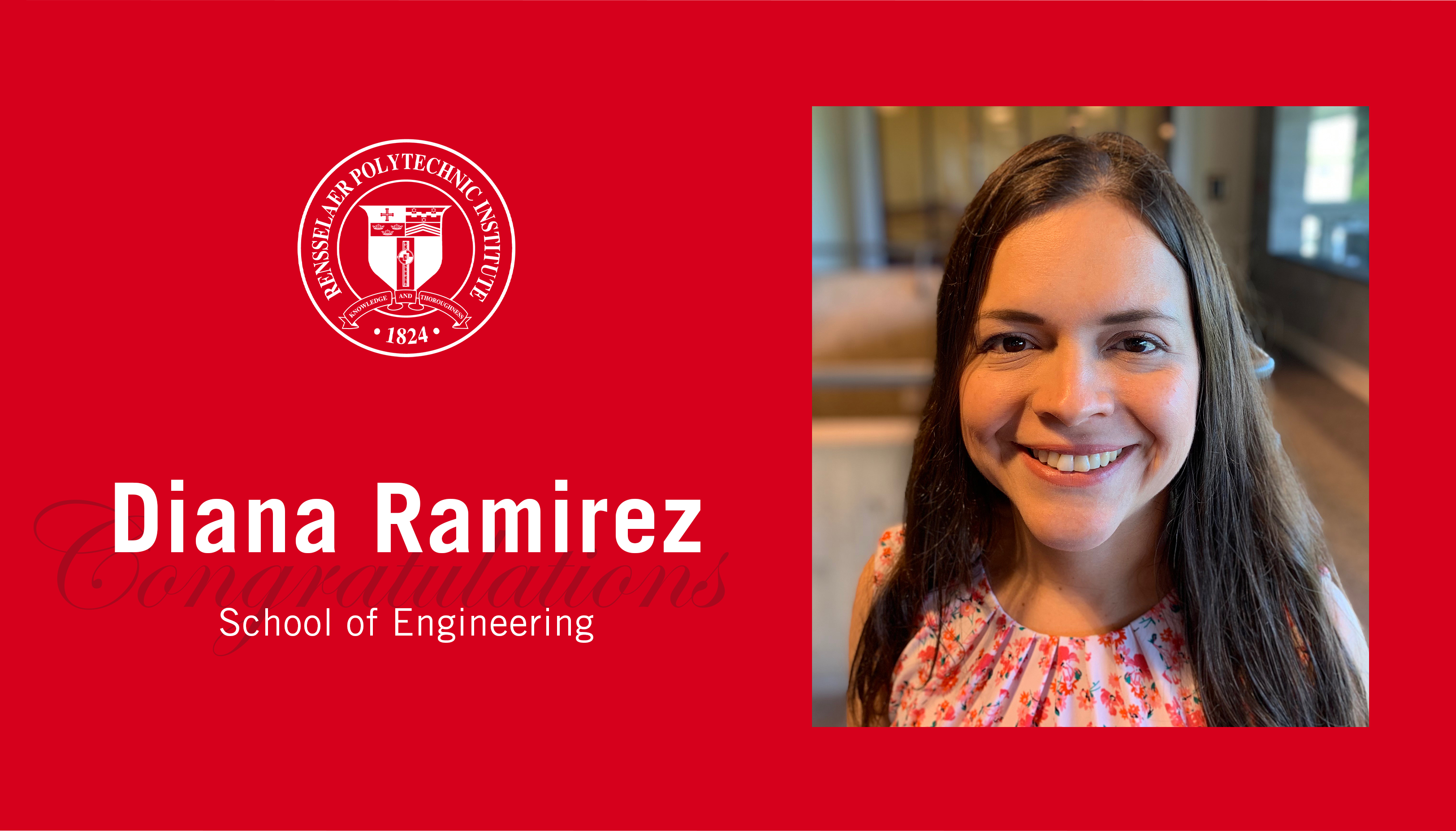It’s been a long road for Diana Ramirez, from the start of her academic career to the culmination of her Ph.D. in transportation engineering. About 10 years, actually.
Ramirez, who is from Barranquilla, Colombia, was in industrial engineering and taught and did research in logistics and transportation in Colombia. She said she became interested in humanitarian logistics and wanted to work in research that impacted communities. A colleague, a former Ph.D. student who studied with Rensselaer Polytechnic Institute Professor José Holguín-Veras, put Ramirez in contact with him. “After meeting him and talking about my goals and interests, I was convinced that I wanted to pursue my Ph.D. at RPI,” she said.
With Holguín-Veras, the director of the Center for Infrastructure, Transportation, and the Environment at Rensselaer, Ramirez worked on projects related to freight transportation and disaster response logistics. Her work in freight transportation involved estimating the impact of freight vehicle trips in large, congested areas such as New York City, although the estimates applied to large cities across the United States. And her work in disaster response logistics looked at cost-effective solutions to help reduce the impact of human suffering. Ramirez’ dissertation focused on positioning “the points of distribution of critical relief such that it reduces the total social costs.”
“My findings help provide helpful guidelines to humanitarian operations worldwide to help respond to disasters and save lives,” she said.
Ramirez’ dream of earning a Ph.D. was sidelined in 2008 when she was diagnosed with a rare form of cancer. She was finishing her master’s program and had recently married. She spent four years enduring surgeries and receiving chemotherapy, and is now cancer-free. She said even though it was a very difficult experience, it helped her grow both personally and professionally. And, along the way, she learned to value her priorities: her faith, her family, and her personal and physical well-being.
The pandemic has built on those priorities, she believes, helping people realize the importance of family and friendship. “I value the opportunity to hug my husband, to hug my folks after they both got COVID and survived, to hug my sisters, and the opportunity to share with our friends, at least from a distance!”
Ramirez now plans to pursue a career in academia, both as a teacher and a researcher, and aims to achieve a tenure-track position in a university either in the United States or abroad.

